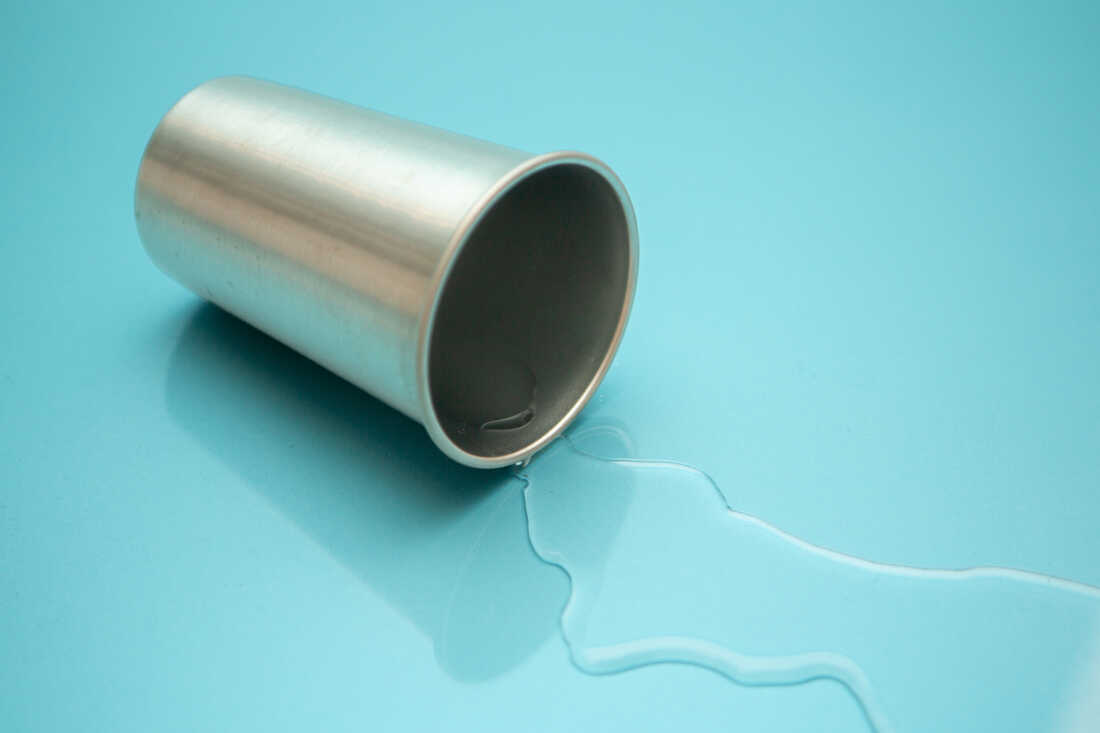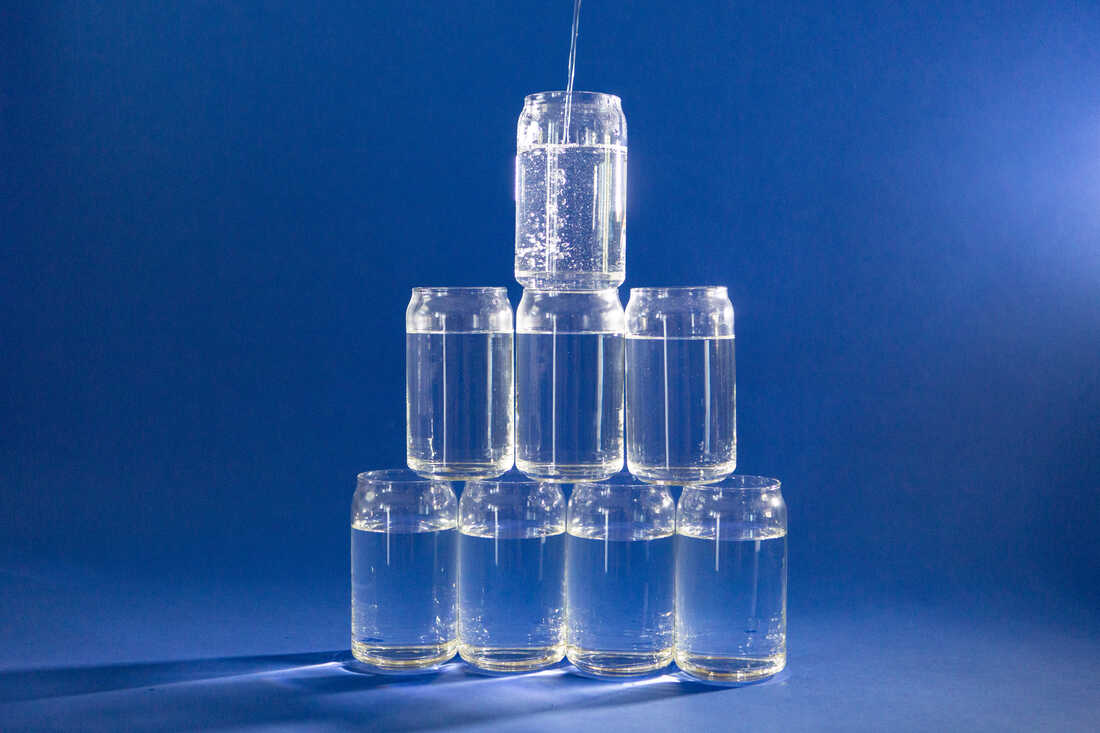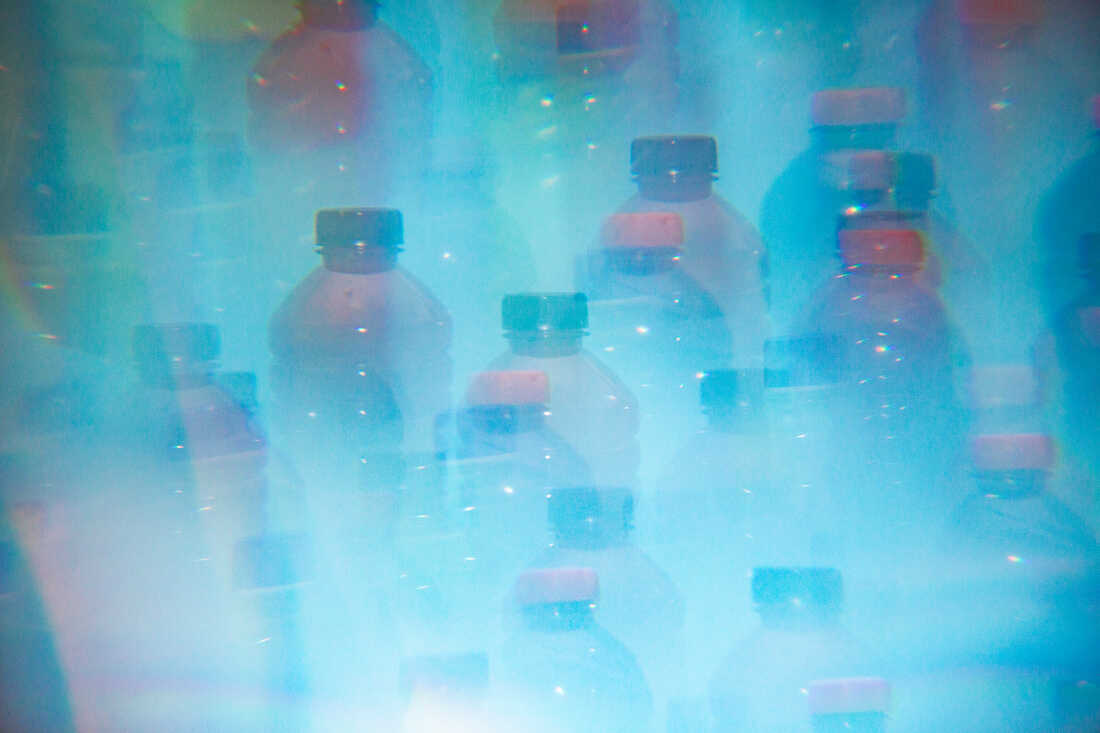Image one (

) by Becky Harlan/NPR Becky Harlan/NPR provided the image in
. Every day, consume eight glasses of water. You will become dehydrated from coffee. You can reduce your weight by consuming more water.
These water and hydration-related claims have certainly been made previously. However, are they real?
Life Kit speaks with Tamara Hew-Butler , an associate professor of exercise and sports science at Wayne State University, Mindy Millard-Stafford , the director of the Georgia Tech Exercise Physiology Laboratory, and Yuki Oka , a professor of biology at Caltech who specializes on thirst, to clear up any confusion.
They debunk five widespread misconceptions about water and explain the science of hydration.
Myth 1: You should consume eight glasses of water or more each day. Becky Harlan/NPR,

Photo Illustration
Image courtesy of NPR/Becky Harlan The origin of the recommendation to consume eight 8-ounce glasses of water every day is unknown to scientists. By searching through numerous scientific databases, researchers attempted to identify the claim’s roots and any studies that might have supported it in 2002, but they were unable to find rigorous evidence behind it.
We do know that water is important for our bodies, according to Hew-Butler. The majority of our cells and blood are made of it, and it also removes waste from our bodies through urine and sweat. Our cells shrink up from dehydration when we drink too little water. When we drink too much water, hyponatremia causes our cells to expand.
So, how much water should we consume each day? According to Hew-Butler, it depends on your body size, degree of activity, the outside temperature, and how much you’re perspiring.
There isn’t a set amount of water you should drink because of these factors. The best tip, in her opinion, is to pay attention to your body. “To quench your thirst, sip water. You do not need to drink water if you are not thirsty.”
This will safeguard you from the risks associated with both excessive and insufficient drinking, she continues. Additionally, this advice is valid for “people of various shapes, sizes, and climates.”
Hydration, according to Hew-Butler, also involves maintaining a proper salt-to-water ratio. Our neurons and muscles require sodium to function. Our body uses it to control how much fluid is needed to stay hydrated.
She says that in order to balance things out, thirst is essential. “Your brain contains sensors that are continually tasting your blood to determine the appropriate “amount of salt.” Those sensors are like, “Oh my God, I need more water,” if it’s too salty. That causes you to become thirsty.”
Then, she explains, if you consume too much water and your brain’s sensors determine that your blood is excessively watery, they produce a hormone that instructs your kidneys to excrete the additional water.
In other words, according to Hew-Butler, you don’t need an app to tell you how much water to drink or to guzzle a gallon of water every day; rather, you should trust your body to tell you when to drink water.
There are a few exceptions, though. Some research implies that older people are at higher risk of dehydration because they may have a reduced sensitivity to thirst and less water in their bodies. They might therefore need to drink more water on purpose. Additionally, additional studies have shown that increasing your water intake can benefit a variety of illnesses, including kidney disease , Tamara Hew-Butler 0, and Tamara Hew-Butler 1.
Myth #2: Caffeine DEHYDRATES YOU. Becky Harlan/NPR provided the image for

. Becky Harlan/NPR provided the image for
. Another common misconception regarding hydration holds that because caffeine makes you urinate, caffeinated beverages like coffee and tea don’t hydrate your body. The hypothesis is supported by the results of an Tamara Hew-Butler 2 that examined three individuals. By today’s standards, the sample is not only exceedingly small, but the conclusion has not held up to more recent research. So take this myth as disproved.
Numerous studies have shown that caffeine can have a modest diuretic effect in big doses for persons who aren’t used to it, ranging from a 1966 Tamara Hew-Butler 3 to a 2014 Tamara Hew-Butler 4. However, when drunk in moderation, caffeinated beverages offer the same level of hydration as non-caffeinated beverages.
According to Millard-Stafford of Georgia Tech, “those studies have indicated that drinking caffeinated and other low-alcohol beverages, like beer, are not significantly different from drinking water.”
Basically, all liquids—aside from those with a higher alcohol level, like hard liquor—count toward hydration. Likewise, food. About 20% of your fluid consumption, including anything from fruits and vegetables to pasta, according to the experts we spoke with.
Myth #3: Sports drinks are necessary to replace electrolytes like salt.

, a photograph by Becky Harlan/NPR
Becky Harlan/NPR photo illustration You may have heard that when you exercise, sports drinks are necessary to replace salt and other minerals referred to as electrolytes (such as potassium and chloride, which are equally crucial for our bodies).
The doctors advise replacing the salt you lose via perspiration combined with water if you exercise for more than an hour or so. But consuming sports beverages like Gatorade will help you avoid having to do that. Although they may be a useful method of replacing the salt lost by the body, salt can also be obtained from other meals and beverages. Similar to thirst, you may rely on your body to let you know how much it needs.
Researchers have discovered that humans have evolved to have a need for salt and other minerals in addition to water. According to Oka, a Caltech biology professor, “the brain measures ‘how much you lose,’ then activates a specific hunger” for anything salty. That could be salty snacks like peanuts or sports drinks.
Hew-Butler and a group of colleagues undertook a study to determine the effectiveness of the body’s mechanism for detecting salt intake. Northern Californian ultramarathon racers are Tamara Hew-Butler 5. In addition to water, soda, and sports drinks, the event organizers set out booths with salty goodies including peanuts, pickles, salted watermelon, and even salt sachets. They advised the runners to only eat what they were craving. The researchers discovered that the runners were able to maintain a healthy salt balance by simply listening to their hunger and thirst.
In conclusion? When you’re seeking salt, your body will let you know, so follow your urges.
Myth #4: Water consumption can aid with weight loss.

, a photograph by Becky Harlan/NPR

0, a photograph by Becky Harlan/NPR Small studies have revealed that sipping water before meals can aid in weight loss for some individuals. The theory goes that drinking water makes your stomach feel satisfied, which causes you to eat less.
There are, however, a lot of contradictory studies on this subject. For instance, one study revealed that consuming Tamara Hew-Butler 6 30 minutes before a meal caused weight loss in a group of young males, but Tamara Hew-Butler 7 discovered that the strategy only had an impact on the study’s older participants.
And researchers came to the conclusion that there isn’t enough proof for the general public after conducting a systematic review of literature on the subject. Only three studies, according to a review in Tamara Hew-Butler 8 of four electronic databases by researchers for the American Journal of Clinical Nutrition, suggested that increasing water consumption could result in weight loss when combined with a diet plan. However, the outcomes for those who weren’t dieting were erratic. The researchers came at the following conclusion: “The evidence for this association is currently modest, mostly due to the dearth of high-quality studies.”
According to studies, consuming water instead of sugary drinks like soda, sweet juices, and sports drinks can aid in weight loss. Researchers asked a group of more than 300 overweight and obese people to switch to water instead of these beverages for six months in Tamara Hew-Butler 9, which was published in the American Journal of Clinical Nutrition. They discovered that this helped the subjects lose weight on average by 2 to 2.5%.
5th Myth: Dark-colored feces indicate dehydration. Becky Harlan/NPR,

1, Photo Illustration

2, a photograph by Becky Harlan/NPR Urine contains sodium and other solids, which is what gives pee its darker color, and scientists frequently use these solids concentrations to determine how dehydrated a person is. Hew-Butler claims that’s not the most accurate technique to determine whether someone needs extra water.
She Mindy Millard-Stafford 0 examined if determining the salt content of urine was a reliable indicator of the salt content of blood in the journal BMJ Open Sport and Exercise Medicine in 2017. She claims that she requested 318 players to “pee in a cup, then we drew their blood.” When she tested the athletes’ pee, more over half of them appeared to be dehydrated, but when she examined their blood, none of them did.
Hew-Butler argues that just though your pee appears dark gold, your body may not actually be dehydrated. It simply indicates that less water is being released by your kidneys to maintain a healthy balance between sodium and water in your blood. She claims that since our brain’s sensors base their determination of how much water our bodies require on the sodium concentration in our blood, doing so would provide more accurate results.
However, if you have trouble noticing when you’re thirsty, Mindy Millard-Stafford 1 suggest drinking enough water to keep your pee a pale, straw-yellow color as a quick indicator of hydration.
Like so many other things, proper hydration depends on balance.
It’s an acceptable middle ground, right?” asks Millard-Stafford. “not excessively. not insufficient. The Goldilocks method was just right.”
With assistance from Sylvie Douglis, Summer Thomad created the audio section of this episode. Malaka Gharib altered the digital narrative. Please get in touch with us. Call 202-216-9823 and leave a message for us, or send us an email at.



